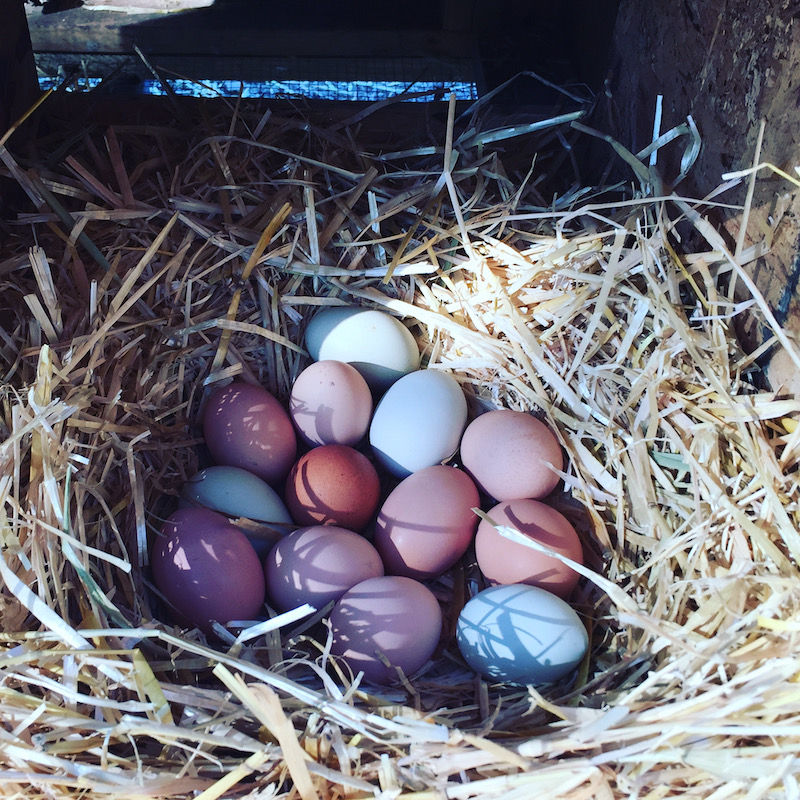Last Updated on February 22, 2024 by AwesomeChickens
Raising backyard chickens has become increasingly popular as people strive for greater self-sufficiency and a closer connection to their food sources. Potential poultry keepers often ask “Are backyard chickens loud?” and how it might affect their household and neighborhood tranquility. A common misconception is that chickens are excessively noisy, yet the truth is more nuanced and depends on multiple factors including breed, the number of chickens kept, and the birds’ environment.

Chicken noises are typically less disruptive than those of common household pets such as dogs. Hens, for instance, communicate throughout the day using a range of sounds at low decibels, such as clucks and purrs to signal contentment, alertness, or to call their chicks. On the other hand, roosters are known for their loud crowing, which occurs not just at dawn but at various times throughout the day. Their crow is louder and can sometimes lead to issues with neighbors, especially in urban or suburban settings where houses are in close proximity.
The sound level of backyard chickens is also influenced by their environment. Chickens that are well-cared for, with ample space, security from predators, and proper nutrition, tend to be quieter as they are less stressed. Conversely, chickens that are confined in small spaces or that frequently encounter threats may be noisier due to distress. Therefore, managing the environment plays a vital role in maintaining peace and minimizing the noise levels to ensure both the well-being of the chickens and the harmony of the community.
Table of Contents
Understanding Chicken Behavior and Noise Levels
Chickens exhibit a range of vocalizations that are part of their natural behavior. Roosters are known for their crowing, which traditionally occurs at dawn, but can happen at any time. The volume of a rooster’s crow can reach up to 90 decibels, about as loud as a barking dog.
Hens are generally less noisy than roosters. They make a variety of sounds including clucking, cackling, and the egg song. The egg song is a vocalization hens make after laying an egg. Hens may also emit loud alarm calls if they perceive danger.
Noise levels vary depending on the breed and individual temperament. Factors contributing to their noisiness include breed, environment, and the situation. Some examples of the range of noise levels include:
- Clucking: Low-level background noise, similar in volume to a quiet conversation.
- Cackling: Moderate noise, can be a bit louder than clucking when birds are excited.
- Alarm calls: Can be quite loud, used to warn other chickens of potential threats.
Domestic chickens can coo as well, which is a much softer, quieter sound. While roosters’ crowing may cause disturbance in densely populated areas, hens are less likely to disrupt the neighborhood. It is essential for potential chicken owners to understand these behaviors and consider their neighbors when deciding to keep chickens in a backyard setting.
In urban or suburban areas, it is often recommended to keep only hens to minimize noise levels. This helps ensure a peaceful coexistence with the surrounding community.
Factors Affecting Noise in Backyard Chickens
Noise levels in backyard chickens can vary widely, influenced by the specific breed of the chicken and the conditions in which they are housed. Understanding these aspects can guide prospective poultry keepers in managing noise.
Chicken Breeds and Their Noise Tendencies
Different chicken breeds exhibit varying noise levels, with some being inherently louder than others. For example:
- Silkies and Australorps are known for being relatively quiet.
- Rhode Island Reds, Barred Rocks, and Wyandottes show moderate noise levels.
- On the noisier end of the spectrum are breeds like the Leghorn.
A comprehensive rundown is provided below:
| Chicken Breed | Noise Level |
|---|---|
| Silkies | Quiet |
| Orpingtons | Quiet to Moderate |
| Australorps | Quiet |
| Rhode Island Reds | Moderate |
| Barred Rocks | Moderate |
| Wyandottes | Moderate |
| Leghorns | Noisy |
Housing and Environmental Considerations
The design and setup of a chicken’s living environment significantly impact their noise levels. Key factors include:
- Space: Chickens require adequate space to roam, typically in a coop and run. Overcrowding can lead to stress and increased vocalization.
- Coop Design: Features like soundproofing materials can dampen the sound.
- Environmental Factors: Access to a safe space free from predators is crucial, as the presence of threats can cause chickens to become more vocal.
- Housing Conditions: Well-maintained conditions reduce stress, while factors such as extreme temperatures can increase noise.
- Fence Line: Distance from the fence line to neighbors can affect how noise is perceived, with further distances reducing disturbance.
Chickens vocalize for various reasons, including responding to environmental stressors or communicating with the flock. By selecting quieter breeds and optimizing living conditions, backyard chicken keepers can manage noise levels effectively.
Best Practices for Managing Backyard Chicken Noise
Effective noise management ensures that a backyard flock is not a disturbance. Key strategies involve creating a serene habitat for the chickens and adhering to community guidelines.
Creating a Calm and Comfortable Flock
Ensuring the flock’s environment is serene plays a pivotal role in minimizing noise. Chickens are typically more vocal when they are stressed or feel threatened.
- Habitat: A spacious, predator-proof coop with proper ventilation and insulation helps reduce stress-related noise. An ample space allows for natural behaviors like foraging and dust baths that keep chickens engaged and quiet.
- Diet: Consistent access to a balanced diet with appropriate levels of protein and calcium supports overall health, which, in turn, minimizes noise motivated by discomfort or distress.
- Distractions: Adding distractions like perches, toys, and treats can prevent boredom and excessive noise. Allowing space for foraging can also serve as an effective distraction while providing nutritional benefits.
Community Considerations and Legal Compliance
Maintaining a positive relationship with neighbors and complying with local regulations are essential to manage potential noise issues.
- Communication: It is beneficial to inform neighbors about the flock and address any concerns proactively. Sharing fresh eggs can also foster goodwill.
- Regulations: Familiarity with local ordinances is crucial. One should be aware of the number of chickens allowed, the need for permits, and specific noise restrictions.
- Water and Food: Reliable access to water and food decreases noise as it reduces the chickens’ propensity to vocalize for these basics.
Strategic management of a backyard chicken flock is integral to ensure peace for both the chickens and the neighborhood.
Benefits of Raising Backyard Chickens

Raising backyard chickens offers an array of advantages for those who decide to keep a small flock. Homeowners derive a blend of nutritional, environmental, and educational benefits from maintaining these birds.
Fresh Eggs: Arguably the most direct benefit of keeping backyard chickens is the supply of fresh eggs. These eggs are typically more nutrient-dense and devoid of the chemicals and antibiotics found in some commercially produced eggs.
Egg Freshness: Eggs from backyard chickens often taste better and are fresher than store-bought ones because they are consumed soon after being laid.
| Egg Aspect | Backyard Chickens | Commercial Eggs |
|---|---|---|
| Freshness | Higher | Varies |
| Nutrients | More Nutrient-rich | Standardized |
| Chemical Presence | Minimal | May contain more |
Sustainability: Backyard flocks contribute to a sustainable lifestyle. Chickens consume kitchen scraps and can reduce household waste. Their manure, in turn, serves as an excellent fertilizer, enriching the soil for gardening.
Educational Value: Families keeping chickens teach children responsibility and where their food comes from. This hands-on experience imparts lessons on biology, agriculture, and ecology.
Pest Control: Chickens are natural foragers and help control pests and weeds in the yard, eliminating the need for harsh chemical alternatives.
Raising Happy Chickens: When chickens are raised in a backyard setting, they typically lead happier and healthier lives than those in industrial settings. Happy chickens are known to produce more eggs, and their well-being is often reflected in the quality of their eggs.
Each benefit underscores a neutral, informed perspective on why raising backyard chickens can be a rewarding endeavor.




